During that time, the other children ran away to hide, hiding as much as possible. When they reached the number 100, the children opened their eyes and started looking for their friends. Whoever was discovered first lost. Counting the numbers like that took a long time. Some clever children shortened the number so that when they opened their eyes, their friends had not yet had time to hide. The sentence was as follows: "One pair, two dips, three thins, nine blankets, even tens" .
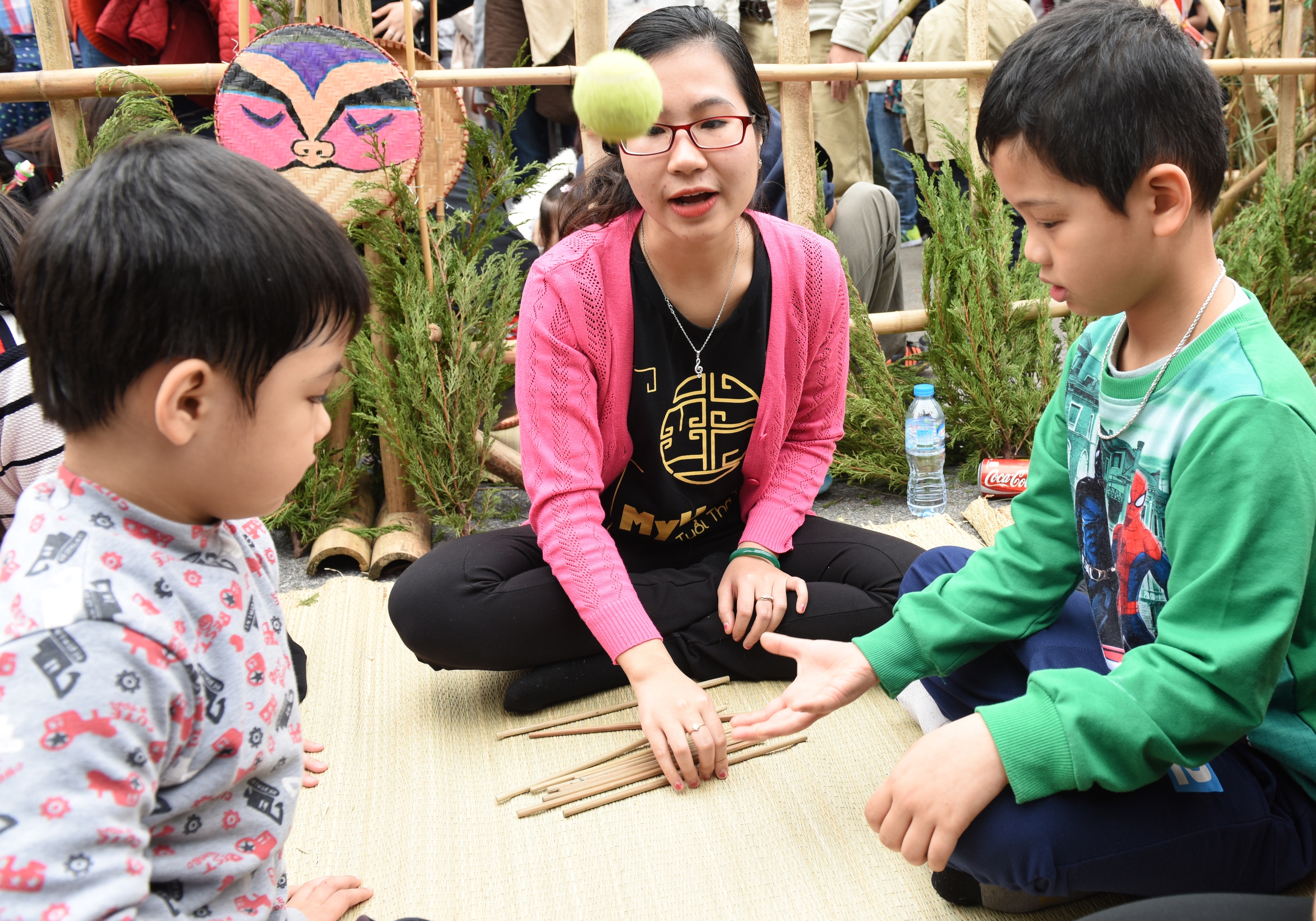
Folk game of passing the ball
Photo: Nguyen Van Canh
When I was a child, I played hide-and-seek, and now my children and the children of the neighbors do too. Years passed, and more than 60 years later, thanks to reading Phan Khoi's posthumous work - an incomplete manuscript (Tri Thuc Publishing House - 2021) compiled by the children of Tinh Gia 's father, I learned this detail: "Our children have a game of playing hide-and-seek. Using bamboo sticks to play is playing hide-and-seek; using pebbles to play is playing hide-and-seek. This does not say how to play, but only that when a game is finished, counting the bamboo sticks or pebbles that have been captured to determine the winner, the children in the Central and the North count differently but are similar in a very strange way. Children in the Central region count: "One pair, two dinh, three thin, nine chan, even tens" . Children in the North count: "One grandchild, two choi, three choi, nine chu, even tens" (pp. 216-217).
This game is called "chắt/đánh chắt" because "chắt/hon chắt" itself means "small stone like a bullet" ( Dai Nam quoc am tu vi , 1895), "A children's game, picking up, tossing and catching with one hand" ( Vietnamese dictionary , 1931); currently the popular name is "chuyen the", in some places it is also called "đánh nhe".
Obviously, the abbreviations used in the game of hide and seek have existed for a long time, at least before 1958, the year Phan Khoi wrote this article. Here, when we consider the meaning of the words, what do we see? To see anything, we must first understand the meaning of those words.
"A couple" is easy to understand, no need to go into more detail. "Two thoughts" then what is "thought"? This word itself has no meaning, it must be used with another word, for example , the Tale of Kieu has the sentence: "Weighing beauty and talent/Forcing the zither to play the zither, testing the poem fan" . The way of "buying people" in the past was also strange, not only did she have to be beautiful but she also had to know "music, chess, poetry, painting, singing and reciting" then the price would be higher.
What about "three thin"? "Thin" is an ancient Vietnamese word meaning "to repair, to warn, to keep", according to Dai Nam Quoc Am Tu Vi (1895), for example, Thien Nam Ngu Luc has the sentence: "Thin accumulates virtue and cultivates virtue/Buddha and heaven already know, ghosts and gods already know" . Regarding human psychology, not now but hundreds of years ago, Nguyen Trai saw:
The sound of the flute resounds in my ears,
The heart of spring is patient and will be wise.
Spring is not easy to come back twice,
Seeing the scene, I feel even more sorry for the young man.
"Nhẫn" means to come, until. It is so true, sometimes when hearing the sound of the flute, the sound of the zither (or zither) in the space, the scene that you love, it is difficult to keep your heart from being moved, stirred, and then feel regretful for the past spring. The time of youth is gone. Only a feeling of sadness remains. Suddenly thinking, "The faint sound of the flute in the heart/ Oh sadness! Distant, immense is sadness" by Thế Lữ is also when hearing the sound of the Thien Thai flute, so it makes "The spring heart is patient, surely it will be slow".
So, what does "nine blankets" mean?
Let's assume that "a pair" is 2, "two times" is 4, then "three times" is 6, so "nine blankets" is also included in this calculation? No, "nine blankets" in this context is even/nine even, because of the quick pronunciation, the tilde is omitted to become "blanket". Even means complete, enough, not odd, not extra, not lacking, enough pairs, not staggered, there is also the saying even hut, even bon. "Nine blankets" is determined, determined exactly 9. This inference is reasonable because the end of this sentence is "even tens" which means 10. According to linguist Le Ngoc Tru, "tens" is a Vietnamese word converted from Sino-Vietnamese: "Ten: the number of ten items, or more (depending on the region) thốc (gathering, one bush - Cantonese accent: tens )". There is a folk song:
Seven plus three, you say a dozen
Three, four, six, I calculate multiplication
Seven plus three is exactly 10, which is a dozen. The term "even tens" is still popular today, also called smooth tens, even tens. Even though we know for sure that, how can we be sure that tens are 10?
We can verify this in daily life as well as in literary works. For example, when writing Seven Days in Dong Thap Muoi , writer Nguyen Hien Le said that when he arrived at "Tan An, a town on the outskirts of Dong Thap", when he went to have breakfast: "Mr. Binh definitely chose a shop near the market because he liked the bustling scene, liked to see people walking and buying and selling. He bought a watermelon and a dozen tangerines, and was surprised when the vendor counted twelve tangerines for him. He held the two and returned them: "- You gave me too much. I only bought a dozen". The vendor heard his strange voice, smiled, and pushed the two tangerines towards him: "- If you buy a dozen, I will count a dozen". Mr. Binh did not understand anything, so I had to explain: "- In this region, fruits like tangerines and plums are twelve fruits in a dozen. Some provinces have fourteen or sixteen in a dozen". "- Strange! A dozen is sixteen fruits. Then there is a saint who understands".
This detail reflects the generous nature of Southern people. Mr. Binh was surprised because he came from the North and did not live there.
With the above analysis and evidence, in short, we still do not clearly understand the meaning of the words related to counting in the children's games of the past. Not only that, we also hesitate with this nursery rhyme: "The first day of the lunar month, the top of the head of a bamboo tree/The second day of the rice leaf/The third day of the sickle/The fourth day of the sickle/The fifth day of the sickle jerk/The sixth day of the real moon/The fifteenth day of the hidden moon/The sixteenth day of the hanging moon/The seventeenth day of the broken bed/The eighteenth day of the rice husk/The nineteenth day of the pile of rice/The twentieth day of the good sleep/The twenty-first day of the midnight..." . With the sentence "The nineteenth day of the pile of rice" , there is a version that records "the pile of rice". This nursery rhyme describes the shape of the moon through the days. Roughly, on the 17th night, the moon rises when people "make their beds" and prepare to sleep. On the 18th night, the moon rises when the fire in the kitchen is "browned with chaff"... So, how do we understand the 19th night "dùn ìn/dùn ìn"?
Bear.
This word "suffer", we repeat once more when we hear the word "die". In the book Vietnamese Speaking Vietnamese (HCMC TH Publishing House - 2023), researcher Nguyen Quang Tho said the context of the appearance of this word: "The story goes that there was an extremely clumsy wife. One day, the husband caught a soft-shell turtle, gave it to his wife to cook, then went to work in the fields, thinking that in the afternoon when he got home, he would have a delicious meal and invite his friends to drink a few cups of rice wine. The wife put the soft-shell turtle in the pot, added a few malabar spinach shoots, and then put it on the stove to cook. While she was busy washing the rice, the soft-shell turtle saw the water getting hot, so it crawled out of the pot and disappeared. The clumsy wife finished washing the rice, opened the lid of the soup pot to take a look. She used chopsticks to stir, realizing that the malabar spinach was not yet cooked, but the soft-shell turtle was nowhere to be seen. She kept thinking absent-mindedly for a long time, then came to the conclusion: "The malabar spinach was not yet cooked, but the malabar spinach was already gone".
Dare to say that no one can explain the meaning of the words just mentioned. As for the way of talking about counting in the game of "tre chet", we still wonder why in the Central region, from "3/three thin" jumps to "9/nine blankets", and in the North, from "3/three huts" jumps to "9/nine owners"?
This way of speaking is not at all random but has been used and popularized in proverbs and folk songs, for example: "Thang Bom has a palm leaf fan/The rich man asked to exchange it for three cows and nine buffaloes" , "Three seas and nine continents", "Three bich chin quai tet tet con mat"... Mr. Phan Khoi admitted: "I thought about it for a long time but still couldn't understand". Then he gave his opinion: "Or maybe the saying that children say has some profound reason about arithmetic or mathematics that we don't know. As for saying that children say it randomly, why bother trying to understand it and tire your mind, I don't dare" (SDD, p.217).
Do you think so too?
Yes, I think so too. And considering that on a spring day, Tet holiday, we discuss some "mysterious" words, it is not useless when we look back to Vietnamese.
Source: https://thanhnien.vn/tim-ve-vai-tu-bi-hiem-trong-tieng-viet-185241231162544575.htm
















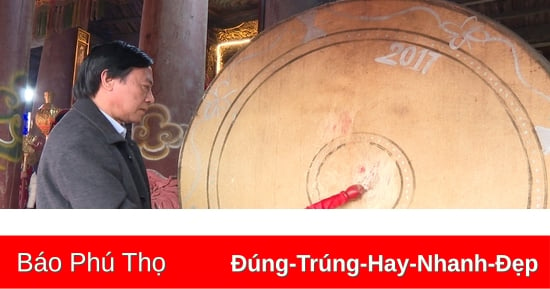




























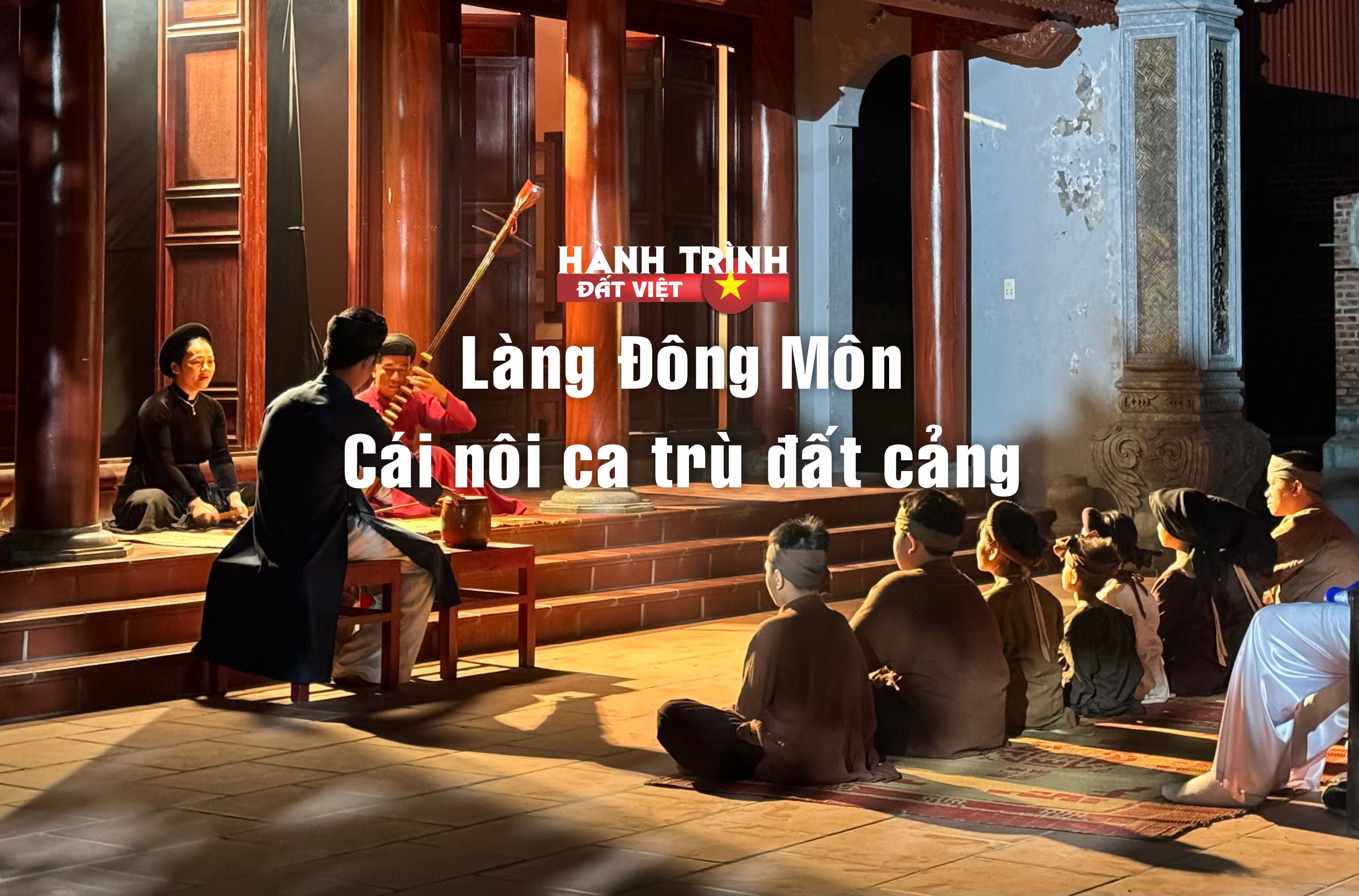










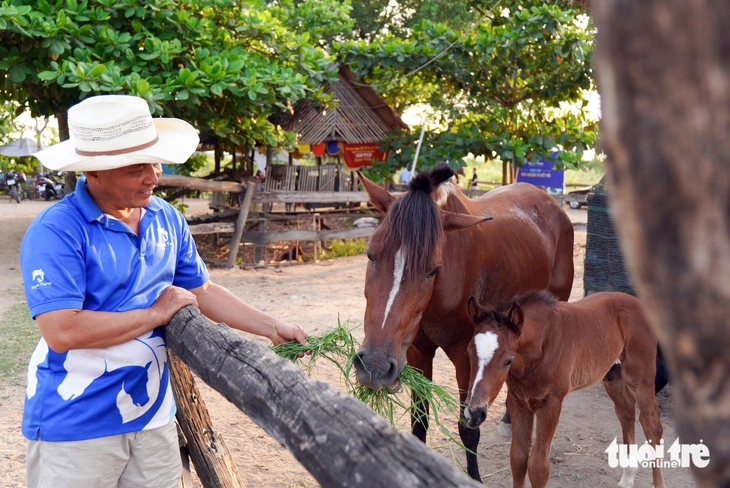
























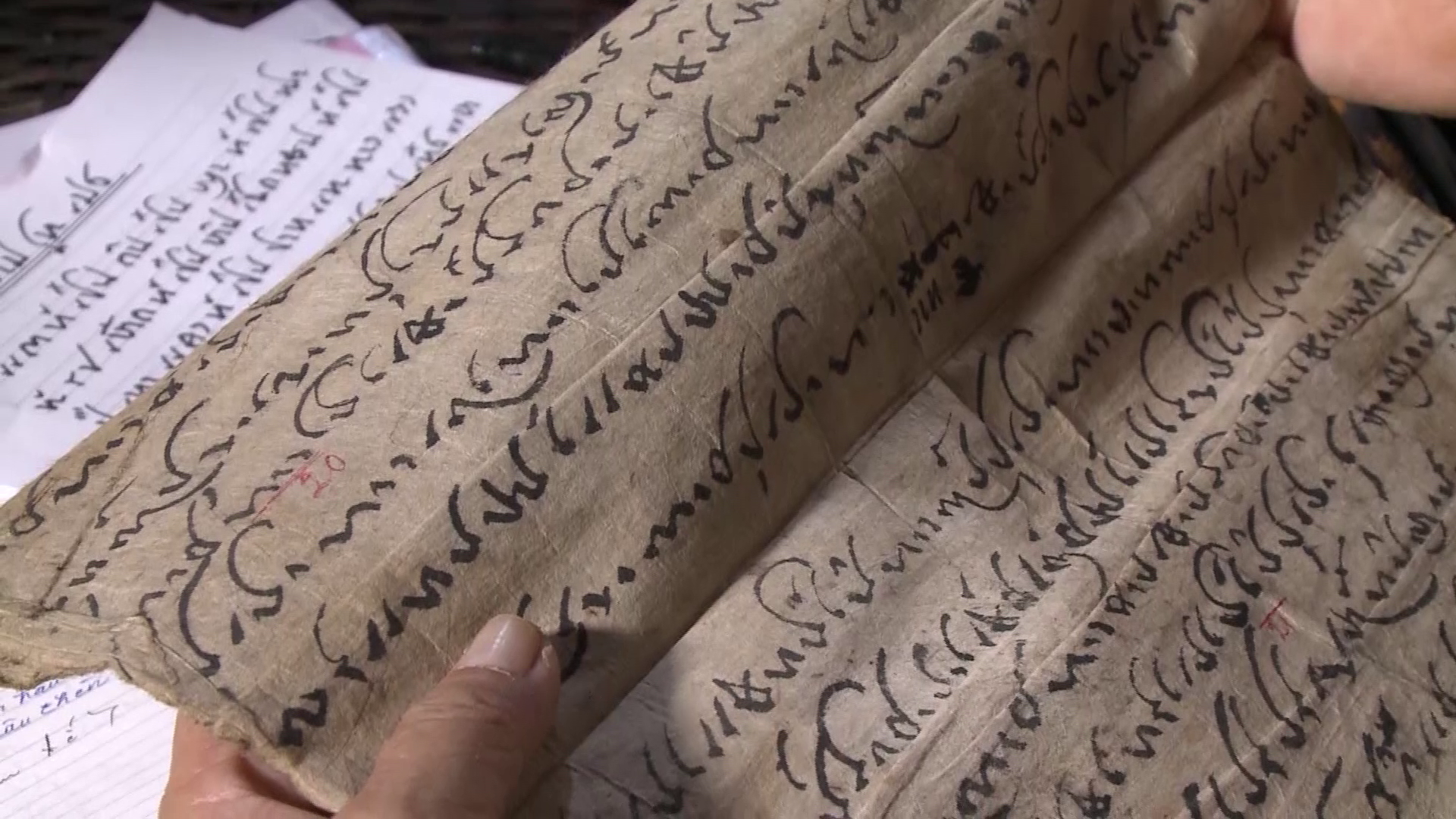

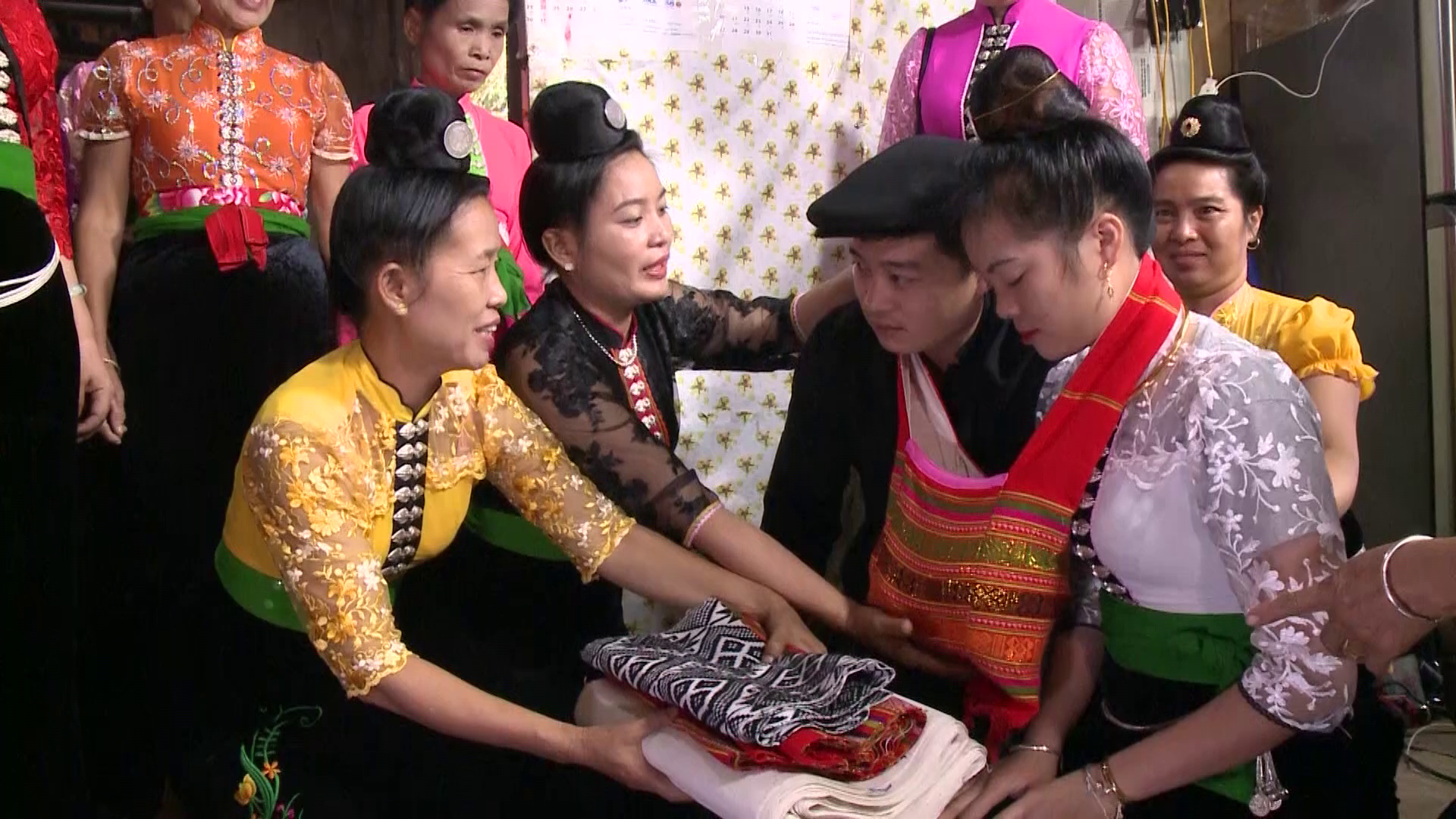

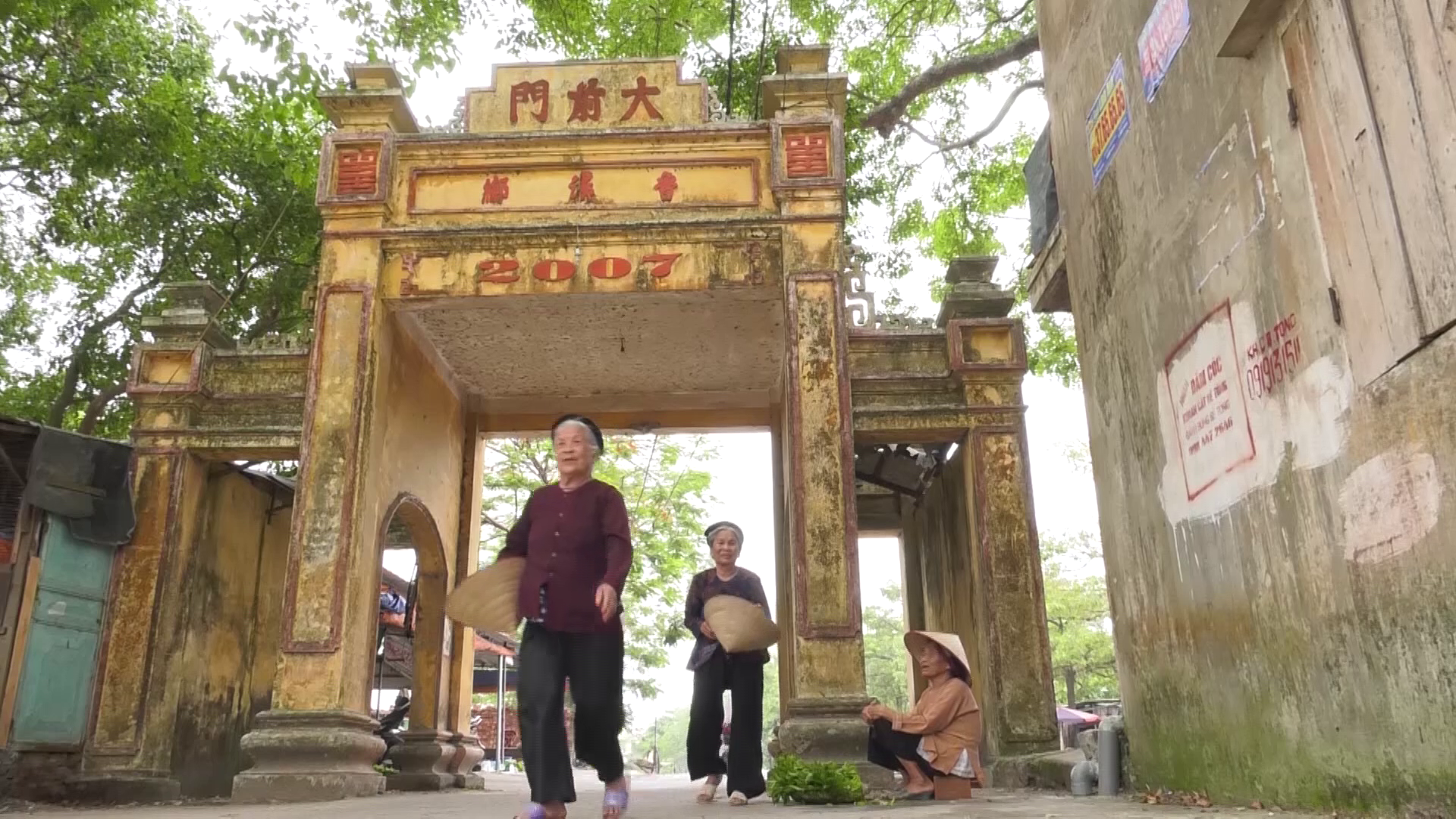










Comment (0)